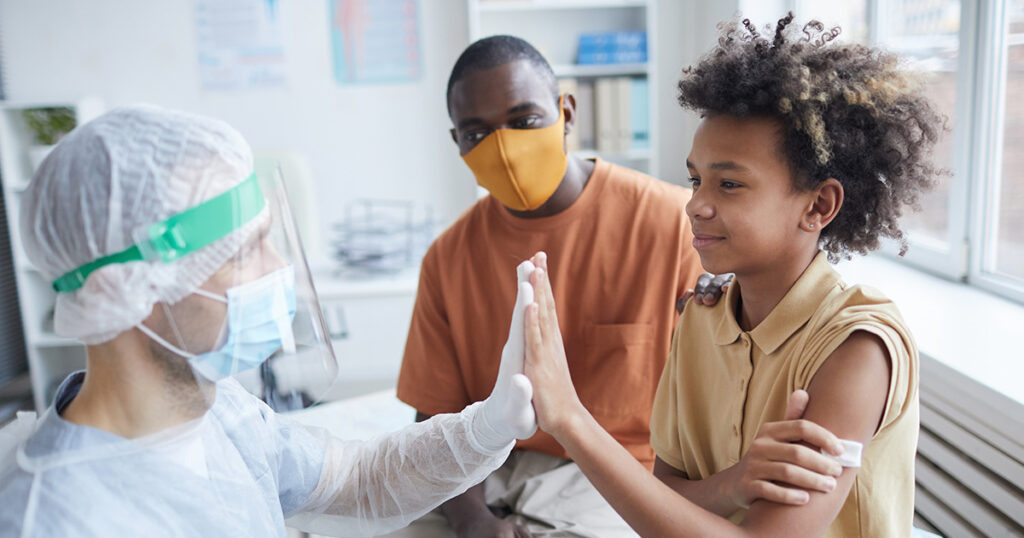
How Vaccines prevent Infectious Diseases
The immune system is your body’s natural defense system. The first time you are exposed to a virus or bacteria, the immune system can be slow to make antibodies. That is because it does not recognize the virus or bacteria. While your immune system is making new antibodies, the virus or bacteria multiplies and spreads throughout your body. This causes disease symptoms like fever, cough or rash.
Once your immune system has produced antibodies, it destroys the virus or bacteria. And you recover from disease symptoms. If you are exposed to the same virus or bacteria again, your immune system can respond quickly because it remembers how to produce the right antibodies. And this means you get only mild disease symptoms or no symptoms at all.
Vaccines boost your immune system’s ability to fight viruses or bacteria, but you do not have to get the viruses or bacteria first.
Vaccines are made with dead or weakened viruses or bacteria, or the genetic code from viruses or bacteria. This allows vaccines to ‘trick’ the immune system into producing antibodies. But because the virus or bacteria has not actually infected you, you do not get any disease symptoms.
Even getting vaccinated is much better than getting an infectious disease, vaccines, like all medicines, can give you side effects. But these are usually mild and go away quickly. You might get a fever, or pain and redness where the vaccine is injected. Serious side effects from vaccines are extremely rare.
Vaccines cannot give you an infectious disease, but you can get infectious diseases if you are not vaccinated. And infectious diseases can make you very sick, cause you permanent disability, or even kill you.
Not all vaccines are completely effective. For example, the chickenpox vaccine is about 90% effective. This means that some people who are vaccinated might still get disease symptoms if they are exposed to the chickenpox virus. But if this happens, people get less severe symptoms and usually recover more quickly.
It is best to talk with your doctor, child and family health nurse or pediatrician to get advice about vaccines. These people are health experts who know you and your family. They will listen to you, take the time to answer your questions, and give you the most up-to-date information about vaccines.

Some people have weak immune systems. This includes people with medical conditions like cancer, or people who are taking medications like chemotherapy or corticosteroids. These people cannot fight infectious disease in the same way as healthy people.
It is very important for these people to be protected against diseases, but vaccination can be complicated for them. They might need extra vaccines or extra doses to make sure that the vaccine works properly. There are also some vaccines that people with weak immune systems should not have, like the measles, mumps and rubella vaccine.
If a person cannot be vaccinated, it is important for the people around that person to be vaccinated. This can give the person some protection from disease by reducing their exposure to disease.
